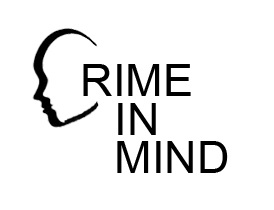This year Crime in Mind once again sponsored a prize for the best emergent research presentation by a higher trainee in forensic psychiatry, given at their annual conference. Cosmina Cross and Laur Evans, last year’s runners up for the prize, organised this year’s conference against considerable odds, valiantly working around uncertainties about the RCPsych Forensic Faculty conference, timing and a funding crisis. They won! – it proved to be an excellent conference, albeit shorter than usual so that the research presentations all had to be framed as posters. From the perspective of Crime in Mind, it was exciting that, despite all the stress and uncertainty, the event stimulated more research presentations this year than last.
Three posters were built on case history development and were highly commended as model research minded approaches to especially difficult clinical problems – challenging because of their rarity or their lack of fit with standard service specifications or both.
- Monette Dimitrov and Patrick Mclaughlin, with A Complex Case of Feigned Psychosis or Hidden Truths? developed strongly literature informed guidance for assessing patients when questions about the validity of symptoms arise. Here the patient himself claimed that he had feigned psychotic symptoms. Any clinician would find this poster useful.
- Tara O’Brien, with Settled Insanity: To treat or not to treat in a medium secure forensic setting explored the difficulties in matching real patients’ needs to written clinical guidelines for services. Here ‘settled insanity’ refers to the development or exacerbation of psychotic symptoms while taking illicit substances, but symptoms that persist long after the apparent drug trigger has been removed. A beautifully constructed poster took us through the clinical and risk management considerations and pathways, step by step.
- Kit Jacoby and Katherine Redwood explored two cases, unusual because of the co-occurrence of psychosis and a physically stigmatising disorder – Poland Syndrome, most obviously affecting muscle development in the chest wall, sometimes with development of other organs affected. They added consideration of similarities with Moebius syndrome, affecting facial muscle development. There is no previously recognised link between these conditions, and no prior record of the pairing being linked to violence. Kit and Katherine are not suggesting a new syndrome of triple troubles, but rather showing how to inform holistic understanding and management of rare presentations.
Norma Estrada and Rodrigo del Olmo Haro presented a commendable introduction to a more traditional research approach – Unravelling the Criminal Mind: A comprehensive Literature review of Neuroimaging and Ethical Contemplations. ‘The criminal mind’ is an elusive concept, but they showed the beginnings of potentially important work, indicating a systematic literature search and setting out some indicative findings linking brain structure and function to aggression. They concluded with a cautionary note about how such evidence might be managed in court.
The prize-winners
The judges regarded two presentations as inseparable in terms of taking a ward-based clinical threat, asking appropriate research questions about it, developing an intervention and a strategy for preliminary evaluation of that intervention. We decided to award them the research prize jointly. The questions were simple and the answers in themselves will not revolutionise treatment of offender patients, but widespread adoption of their approach may do so.
Kishanth Srikathirkamanathan, Elohor Ijete, Preetisha Chadee, Matt Manton, Bismark Oppong, Shahrina Mianoor, Carolyn Stanley and Terence Low noticed that communication between nursing staff and doctors was suboptimal. They systematically documented factors considered to be driving the problem, mapped on possible solutions and then surveyed staff before and after introducing stepwise change. Improved communication and satisfaction are documented; improved safety is suggested.
Magda Pietryka, Suzanne Wilson, Sandeep Singh-Dernevik and Syed Ali were also concerned with recognising and managing risk, as in It wasn’t the E-cigs! Factors associated with risk incidents on MSU. Hospitals, including secure hospitals, and, indeed, prisons have gone smoke free across the UK, but reducing one sort of risk may introduce others. There had been concerns about the new arrangements, with e-cigarette options, being triggers for violence. Their evidence suggests that any single trigger is unlikely, but that e-cigarettes were involved in nearly a fifth of incidents. That said, optimising communication styles and environment seem like prime solutions. Even rather specific triggers always have to be considered in context.
So, congratulations to all these new researchers. It was so hard to single out anyone for the prize, but the Srikathirkamanathan team and the Pietryka team just had the edge. That said, we hope that all these researchers will take their work forward to a publication. We welcome them all to engagement with Crime in Mind for at least a year.
We hope that we will be able to work with higher trainee organisers next year and beyond to recognise other trainees presenting new research into the future. It is not too soon to start work in readiness!
Research can transform lives. We want to support discoveries about what helps people with mental disorder who have been victims of criminal behaviour, or perpetrators of criminal behaviour, and their families, and the clinicians and others who treat them and, indeed, the wider community when its members are in contact with these problems. More effective prevention is the ideal, when this is not possible, we need more effective, evidenced interventions for recovery and restoration of safety.
Please help us by donating to Crime In Mind – DONATE TO CRIME IN MIND HERE
If you would like to become a Member of Crime In Mind please visit our website here.
Download your Membership Application Form Here
Membership entitles all Members to the following benefits:
- Access to private members page on dedicated website containing Members discussion forums, document archive and resource libraries.
- Access to recordings of our previous webinars and seminars.
- Free attendance at suitable events awarding up to 10 CPD hours per annum
- Opportunity to join the Executive committee subject to the conditions of the Articles of Association.

